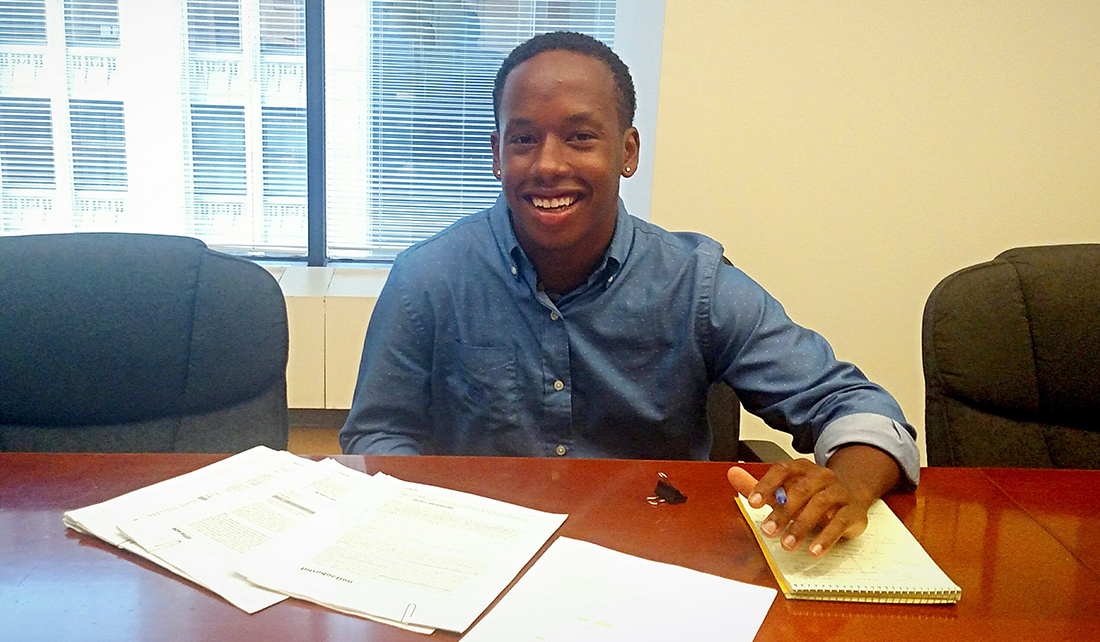
Jordan Lillybridge interned in Chicago with IISG Water Resource Economist Margaret Schneemann. He is a senior at Carthage College in Kenosha, Wisconsin majoring in geospacial science with a minor in geographic information systems.
One of the biggest stresses of a college student going into his/her last year of school is finding an internship or long-term job that will help them grow as a person. When I was offered the position of Green Infrastructure Workforce Intern with IISG, I felt as if everything was coming together.
I knew I had a great opportunity to explore the green industry. Coming into the internship, I had no idea what I wanted to do with my geospatial science and GIS degree, but I knew I needed some work experience to realize what my real desire was.
This internship gave me the opportunity to understand a significant problem that underdeveloped or low-income communities have – flooding. Before the internship, I had little knowledge about the process of installing and maintaining green stormwater infrastructure.
Over the past three months, I have had an opportunity to be a part of the Calumet Stormwater Collaborative (CSC). CSC is a group of stakeholders that has come together to tackle flooding issues within the Millennium Reserve (southern Cook County). As a part of the Training & Maintenance working group within the CSC, I focused on issues and gaps related to training skills and workforce development. One of my tasks was to assess what other cities have done before us to address these issues and create summaries of these reports. We had monthly collaborative meetings, which was my chance to update our working group on new information as well as get key feedback from local case studies.
Aside from reading and reporting to our working group about areas to focus on, I had opportunities to step out of the office and network with different organizations. The first was a Center of Neighborhood Technology (CNT) presentation about their RainReady Initiative at the South Suburban Mayors and Management Association. CNT was educating the community and potential at-risk citizens on their community and neighborhood green infrastructure programs.
The second was a GreenCorps action plan meeting. GreenCorps is an organization that trains workers with barriers on how to maintain the environment including green infrastructure installations. People who were a part of the meeting gave valuable feedback to GreenCorps on how to help them grow.
Many of us who attended were able to meet past and present trainees. For me, understanding their perspective was pivotal considering some of the trainees grew up in the same neighborhood as me. To see people wanting to make a difference in their community by focusing on sustainability makes me appreciate everything that organizations like GreenCorps and OAI Inc. do for the low-income and underdeveloped neighborhoods. Workforce development for the green infrastructure industry is key.
The past three months working in the CSC with Margaret Schneemann has given me an opportunity to not only impact neighborhoods close to mine, but to also gain valuable communication, analytical, and planning skills along the way. It has also narrowed my thoughts on what I want to do as a profession – renewable consulting.
Illinois-Indiana Sea Grant is a part of University of Illinois Extension and Purdue University Extension.

